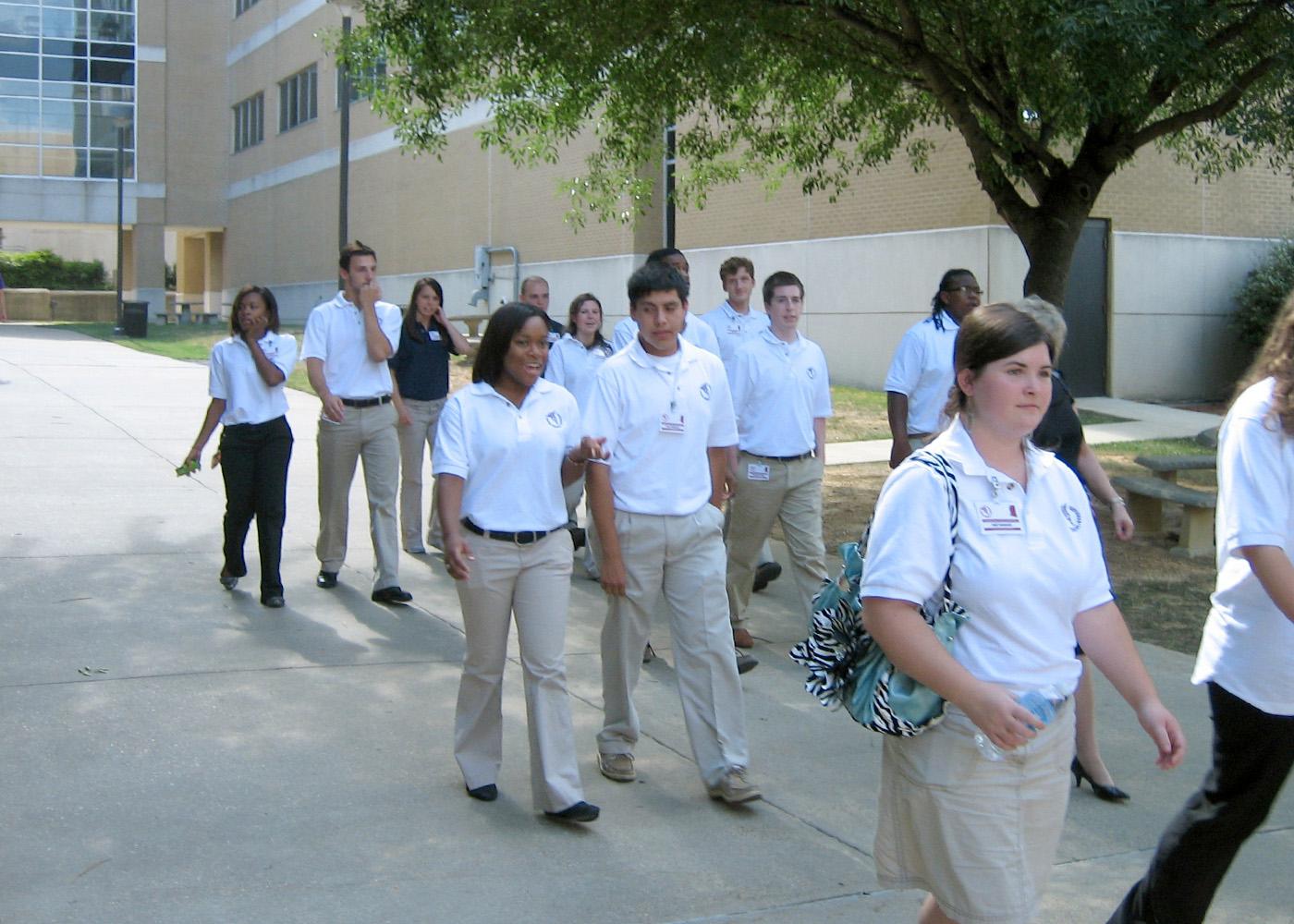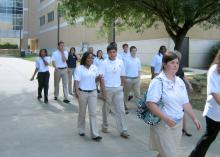Information Possibly Outdated
The information presented on this page was originally released on August 25, 2011. It may not be outdated, but please search our site for more current information. If you plan to quote or reference this information in a publication, please check with the Extension specialist or author before proceeding.
Rural medical program attracts young scholars
MISSISSIPPI STATE – When freshman Mitchell McCloud walked onto campus at Mississippi State University Aug. 17, he already had two classes behind him and a clear idea of where his intended major could take him.
“Through the Rural Medical Scholars program, I was simultaneously introduced to Mississippi State University’s outstanding campus and the different aspects of the path to medical school,” McCloud said.
McCloud, 18, is studying chemical engineering at MSU. Between his junior and senior years of high school, the Silver Creek resident took part in the Rural Medical Scholars program offered through the MSU Extension Service.
“Rural Medical Scholars helped in my decision to become a Bulldog. My major, chemical engineering, is one that allows flexibility after graduation,” McCloud said. “I can easily apply to medical school if I want to, or I can decide to continue on an engineer’s path.”
McCloud said the program taught him to always work diligently to achieve superior results.
“Nothing else can prepare someone for college more than actually having the responsibility of living and studying on campus with a taste of college freedom,” he said.
Bonnie Carew is the Extension Service rural health program leader who coordinates the program. Each year, 20 academically gifted, rising high school seniors are accepted into the five-week program.
“We are trying to encourage these bright students to truly look at the field of medicine,” Carew said. “Two really big needs in the state are for physicians in rural areas and for primary or family care physicians.”
Participating students live at MSU in residence halls and take biology and pre-calculus. They earn seven college credit hours, visit the University of Mississippi Medical Center in Jackson and shadow area physicians in their practices. Students pay only for their food.
“The experience gives them invaluable input as they make decisions about their future career paths,” Carew said.
The program has a simple purpose: to try to create more physicians for the state.
“Mississippi has the second-lowest number of physicians per capita in the nation,” Carew said. “Almost half of all Mississippians do not have access to a primary-care physician, and 56 percent of the state’s primary-care physicians practice in only four counties.”
To address this need, the Rural Medical Scholars program selects talented and interested high school students and exposes them to college academics and experiences relevant to the life of a family medicine physician.
“They get to see the need for primary physicians, particularly those in family medicine,” Carew said. “Our numbers show that we’re doing pretty well at encouraging these young people to consider careers in medicine in Mississippi.”
Josh Roark was a member of the Rural Medical Scholars Class of 2002. After graduation from MSU with an engineering degree, he went to work for the National Institutes of Health before applying to medical school. He is now in his second year of medical school.
“I participated in Rural Medical Scholars because I was a pretty motivated student in high school and medicine was one of my interests,” Roark said. “I can definitely say it wasn’t my only interest, but it helped me see what medicine was like. For someone who didn’t have access to the medical field through any family or friends, this was invaluable.”
As of this summer, 276 students have gone through the Rural Medical Scholars program. This summer’s graduates are still in high school, but of those who have completed high school, about 72 percent are headed toward health-related careers. Since the program began in 1998, 24 have gone to medical school and 15 are practicing physicians, 10 in Mississippi.
While it is academically challenging, it is also fun.
“I really enjoyed meeting new people from different walks of life and learning from them,” McCloud said. “The only difficult aspect of Rural Medical Scholars is the biology class. I had never studied as much in my life, but I worked hard and earned an A in the course.”
Funding for the program comes from the Mississippi Institute for the Improvement of Geographic and Minority Health at the University of Mississippi Medical Center and the State Office of Rural Health at the Mississippi Department of Health. The program ran from 1998 to 2007, then was reinstated in 2010 when funding was renewed.



